It is very important to understand diseases and how they are caused and what are some things that you can do in order to prevent and control them. With an organic garden there are several ways that you are able to control them if you have to right knowledge. In this article you are going to learn all the different types of diseases that can affect your garden and what you can do to avoid having to deal with these diseases.
Contents
- 1 The Four Types of Pathogens that Cause Disease
- 2 Your Plants Own Natural Defenses
- 3 Other Factors That Encourage Disease Transmission
- 4 The Moment of Truth: Controlling and Preventing Diseases
- 4.1 Using Organic Chemical Controls as a Last Resort
- 4.2 Plant Disease Resistant Varieties
- 4.3 Correct Nutrient Imbalances
- 4.4 Cleaning Up After the Season
- 4.5 Clean and Disinfect All Your Tools
- 4.6 Avoiding Touching Wet Plants After a Good Rain
- 4.7 Crop Rotation
- 4.8 Soil Solarization for Killing Soil Born Diseases
- 5 Chemical Controls That Can Help Prevent Disease
The Four Types of Pathogens that Cause Disease
There are four types of pathogens – an organism that causes disease – that can affect all or some of your plants in your garden. These would include bacteria, fungi, nematodes, and viruses. Let’s discuss each one in order to understand how these pathogens can affect your plants.
Bacteria
Bacteria are usually found on decaying matter. They are most likely found in large piles of compost and are beneficial to your garden. In an active organic garden you will have many bacteria that will help break down matter and improve the quality of your plants in your garden. Unfortunately there are also some that will cause diseases to your plants as well.
You can never see the bacteria unless you are using a microscope, but the symptoms that may occur on your plants are definitely noticeable. They reproduce by splitting themselves in half and are able to consume an entire plant very quickly. Most of the time they are spread by simple elements such as rain, wind, insects, and even garden tools. That’s why it is important to clean and disinfect the tools that you use in the garden as often as possible.
Fungi
In your organic garden you will see fungi all over the place including compost piles, grass clipping, manure, straw, and many other decaying types of matter you may be using. The spores that are used for production on the other hand you may not be able to see. It is one of the first things you see in a properly maintained compost pile and is a good sign and major ally for your plants.
There are also parasitic fungi which can affect plants, fruits, and vegetables. They are spread very easily and with a small breeze they can easily go from one plant to another in a matter of seconds. A cool and wet season will provide the fungi the exact conditions they need to thrive. I am sure you have seen mushrooms growing in your yard at one point or another. Do you ever notice how fast they are able to spread?
Nematodes
Just like fungi and bacteria most of them are very beneficial to your garden and can actually defend your plants from other parasitic nematodes. They are very tiny worm-like creatures and are sometimes referred to as eelworms.
Most of the time you won’t be able to see them but there destructiveness knows no bounds. They are found mostly on plant roots and are able to destroy cells and remove all the organic material from the plant. Although they can move from plant to plant they are most likely moved by rain or water.
Viruses
Viruses are so small that they can hardly be seen even with a microscope. There are no good viruses in the plant world and can be transmitted by pretty much anything. Transmission of viruses comes from you the gardener, infected seeds, pollen, aphids, nematodes, mites, and many other insects that may be in your garden.
Your Plants Own Natural Defenses
There are several ways that plants are able to prevent diseases or infections with their own defense mechanisms. As most of us learned in grade school leaves have a waxy surface and when water is placed on this surface it just slides off. This waxy substance prevents the leaves from staying wet and reducing the chances of pathogens from staying alive.
Leaves and plant stems have hairs that are great for trapping spores, bacteria, and other disease causing organisms. This is why some plants have thorns which are used to protect the plant from insects which can spread disease and harming the plant.
Plants not only have permanent defenses, but they also have reactive defenses as well. When a plant detects a possible infection it may seal off the area in which the infection has occurred from spreading any further. The goal is to allow the diseased part to die off without causing too much damage to the plant. All these defenses are taken into consideration when breeding disease resistant cultivars.
Other Factors That Encourage Disease Transmission
Keeping the Soil Moist
All your plants need the proper nutrients in order to help in preventing these diseases from spreading and causing damage as well. Water is one of the more important elements that it needs to survive. Plants will wilt when there is not much moisture and too much can leaves the roots prone to various pathogens. Giving them the right amount per day or week is essential.
Nutrient Deficiencies
Making certain that your plants get an adequate amount of N-P-K is one of the pillars of having a successful and bountiful harvest. Too much of it and this could also have a negative effect on your plants. Too much nitrogen may lead to plants becoming susceptible to powdery mildew, rusts, and even fire blight. Make sure to keep a proper balance of N-P-K to lessen the chance of spreading diseases.
Keeping Away from Herbicides and Insecticides
Your organic garden is home to many beneficial and harmful microorganisms which tend to keep each other in check. This balance is the key to having a healthy and disease free garden. If you use pesticides or herbicides an imbalance could occur that leaves your plants more vulnerable to diseases. This means when bad organisms come back there is nothing to keep them in check which is a situation that you should avoid.
The Number one Uncontrollable Culprit: Weather
This is the one thing that is pretty hard to control if at all. Rainy seasons, hail, cold snaps, cloudiness, high winds, and much more plays a pivotal role in the growth of your plants. Knowing your climate is essential in planting the right plants at the proper times throughout the season. Both lack of air circulation and high moisture content can cause diseases and then when air does arrive it can easily spread spores all over the garden.
Diseases Entering Plant Wounds
Plant wounds are a great place for pathogens to enter the plant and disease will easily spread throughout the plant very quickly. Wounds are usually caused by insects that have been sucking the sap out of your plant leaves or stems.
The Moment of Truth: Controlling and Preventing Diseases
Using Organic Chemical Controls as a Last Resort
Since we are focusing on organic measures it is important to only use organically acceptable controls for reducing and preventing diseases in your garden. Prevention is the first thing that you should employ before using chemical controls. If prevention doesn’t work and you have no other alternative, then using organically acceptable chemicals can be employed. This should only be used once you have exhausted every last option.
Plant Disease Resistant Varieties
One way to prevent diseases and this is something you will hear most often is to plant seed varieties that are able to withstand many different diseases. Cultivars with these properties can help eliminate and prevent problems from arising in your garden.
Correct Nutrient Imbalances
As stated earlier nutrient imbalances can also cause diseases from appearing in your garden. One of the first things that you should is correct these balances as best as possible. This may mean finding out the specific plants your are looking to grow and what exact nutrients they need for optimal health.
Cleaning Up After the Season
A good practice that you should do at the end of the season is cleaning up all the debris that has collected through the garden. Once a frost has ended most of your plants I would recommend pulling them out and dispose them immediately. You can either burying them deep in the soil, burn them, seal them in an airtight bag and throw them in the trash, or place them in the middle of a hot compost pile. Any of these ideas are great for ridding your garden of possible diseases.
Clean and Disinfect All Your Tools
Always clean your tools at the end of the season as well which can easily carry diseases from year to year. I would take a cloth with a little bit of bleach and wipe all your tools to make certain that they are all properly disinfected.
Avoiding Touching Wet Plants After a Good Rain
It is very easy to spread bacteria, spores, and viruses around your garden especially when your plants are wet. If you need to go into the garden I would make sure that you do not rub against any of your plants and try not to touch them.
Crop Rotation
Rotating your crops from year to year is another tactic that you can use for not only eliminating disease, but insects as well. Larger gardens are able to do this more effectively, but it is always a good practice to get into even if you have a small backyard garden. You should not place plants in the same exact spots every year and instead alternate from season to season if possible.
Soil Solarization for Killing Soil Born Diseases
This is a strategy that is used to heat up the soil in order to rid the soil of possible bad bacteria, viruses, and fungi. It is a very simple process and all you need is to dig a trench a few inches deep around your entire garden bed. Place a film of clear plastic over the soil that is to be solarized. Make sure that you remove all the debris that is in the garden before placing the plastic.
If the soil is dry make sure to water it and given a simple moistening. Then place the ends of the plastic into the trench that was made earlier and fill in the trench with soil. This will seal the plastic and destroy most nematodes, insects, weed seeds, and many disease organisms. Leaving the plastic on for 1-2 months during midsummer is recommended for best results.
Chemical Controls That Can Help Prevent Disease
Compost
One of the biggest things that you can use in your garden is compost which is filled with a balance of good and bad organisms that can help in the fight against possible diseases.
Manure Tea
Sometimes using manure tea can also help in a certain capacity too. Seaweed extract has also been known to help by providing the soil with microbes that can help the health of your plants.
Organic Sprays
Some baking soda and garlic sprays can sometimes help. I have found that garlic sprays are better for deterring animal pests rather than diseases. Sulfur has also been used for centuries in order to rid disease and can be something that you can experiment with, but only as a last resort.
Now that you know a little bit about diseases and how they are transmitted throughout the garden you can now implement a plan for the next garden season. Use some of the strategies above to help in avoiding infection problems with your plants and enjoy the benefits from having a disease free organic garden.
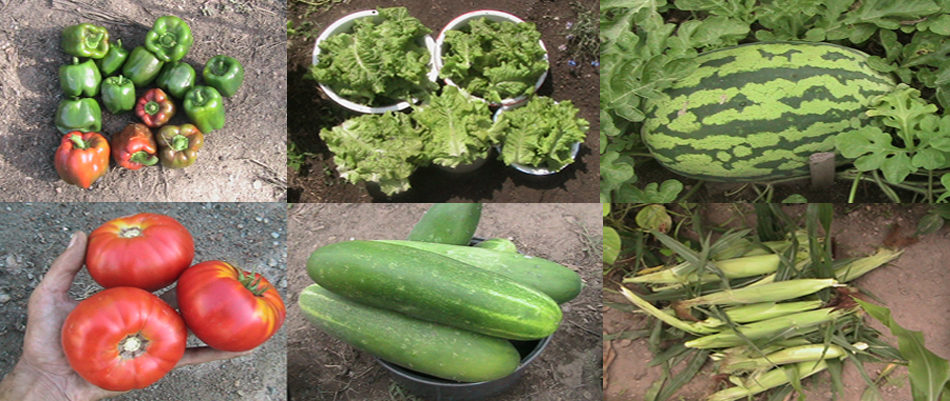
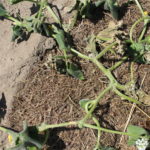
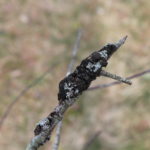
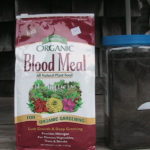
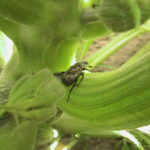

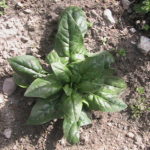
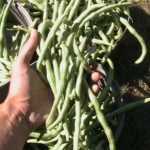
Recent Comments